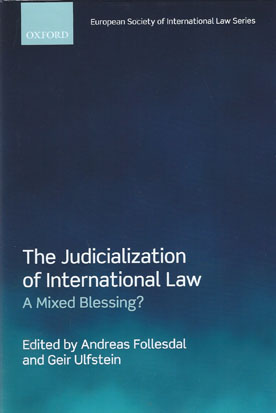
The influence of international courts is ubiquitous, covering areas from the law of the sea to international criminal law.
This judicialization of international law is often lauded for bringing effective global governance, upholding the rule of law, and protecting the right of individuals. Yet at what point does the omnipresence of the international judiciary shackle national sovereign freedom? And can the lack of political accountability be justified?
Follesdal and Ulfstein bring together the crème de la crème of the legal academic world to ask the big questions for the international judiciary: whether they are there for mere dispute settlement or to set precedent, and how far they can enforce international obligations without impacting on democratic self-determination.